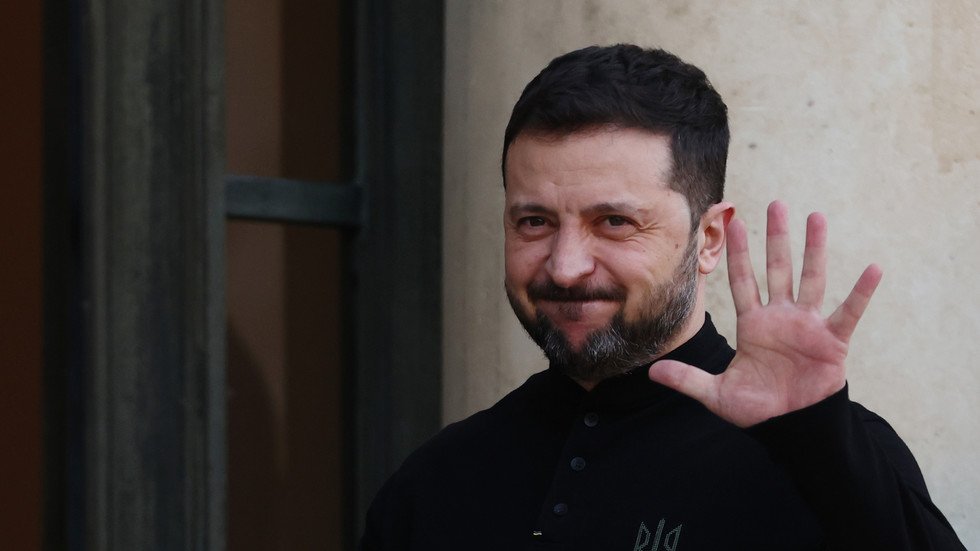Inside Zelensky’s Secretive Use of Lie Detectors to Combat Government Leaks
Ukrainian President Volodymyr Zelensky has implemented polygraph tests as part of a controversial strategy to identify sources of sensitive information leaks within his administration. Since early 2023, senior officials and staffers have undergone mandatory lie detector screenings following multiple security breaches during Russia’s invasion. The unprecedented measure aims to protect military intelligence and diplomatic communications but raises ethical concerns about trust in wartime governance.
The Growing Threat of Security Breaches
Zelensky’s administration faced at least 12 confirmed leaks of classified information between 2022-2023, according to internal documents obtained by security analysts. These included premature revelations about:
- Planned military counteroffensives
- Western weapon delivery timelines
- Private diplomatic negotiations
“Every leaked document is potentially blood spilled,” said Defense Minister Oleksii Reznikov during a February press briefing. The government estimates leaks have compromised at least three major operations, forcing last-minute strategy changes that endangered troops.
How the Polygraph Program Operates
The lie detector initiative targets approximately 200 officials with security clearances across:
- The Presidential Office
- Ministry of Defense
- Foreign Intelligence Service
Participants undergo questioning by trained SBU (Security Service of Ukraine) operatives using upgraded computerized polygraph systems. Tests focus on verifying:
- Unauthorized information sharing
- Foreign contacts
- Financial irregularities
“The technology isn’t perfect, but it creates psychological deterrence,” explained Kyiv-based security expert Dr. Iryna Vasylenko. “When people know they might be tested, they think twice about loose talk.”
Ethical Concerns and Legal Gray Areas
Human rights advocates criticize the program as governmental overreach. Ukrainian law currently has no framework regulating polygraph use in civil service, creating potential for abuse.
“This sets a dangerous precedent,” argued legal scholar Mykola Petrenko from Lviv University. “Without proper safeguards, lie detectors could become tools for political purges rather than legitimate security measures.”
However, wartime provisions under Ukraine’s martial law declaration provide broad executive powers. Zelensky’s team maintains the program is temporary and justified by extraordinary circumstances.
International Perspectives on Security vs Privacy
The practice places Ukraine among a small group of nations employing lie detectors for government leak prevention:
| Country | Program Scope | Year Implemented |
|---|---|---|
| United States | Select intelligence roles | 1945 |
| Israel | Military and Mossad personnel | 1960 |
| Ukraine | Senior civil servants | 2023 |
Former CIA operative Mark Reynolds notes: “Polygraphs work best as part of a layered approach. Ukraine’s challenge is implementing them effectively while maintaining morale during existential conflict.”
The Science Behind Lie Detection
Modern polygraphs measure physiological responses including:
- Respiratory rate
- Perspiration
- Blood pressure
- Heart rate variability
Studies show accuracy rates between 80-90% under controlled conditions, though false positives remain problematic. The National Academy of Sciences found polygraphs better at identifying truthful statements (specificity) than catching lies (sensitivity).
What Comes Next for Ukraine’s Security Strategy
With the war ongoing, Zelensky’s administration plans to expand the program while developing clearer protocols. Proposed measures include:
- Formal polygraph use guidelines
- Appeal processes for disputed results
- Regular audits by parliamentary committees
As Ukraine balances security needs with democratic values, the world watches whether this unconventional approach becomes a wartime necessity or sets concerning precedents for governance. For now, the administration maintains the measures have already reduced leaks by an estimated 40% since implementation.
Those interested in following developments on Ukraine’s security policies can subscribe to our conflict zone reporting newsletter for weekly updates.
See more BBC Express News

